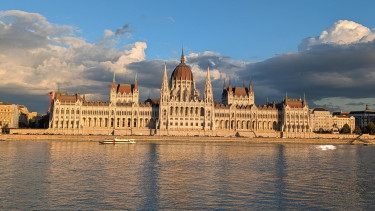European Commission presents new R&D agenda for summit
Europe has world-class research and a strong industrial base. But we must do better - much better - at turning that excellence into success. New megatrends, such as artificial intelligence and the circular economy, are going to bring profound changes to society and the economy. We need to act fast to be able to lead the new wave of innovation and set the standard for global competition
, commented Commission Vice-President Jyrki Katainen, responsible for Jobs, Growth, Investment and Competitiveness.• The President of the European Council has decided to schedule a debate among Leaders on Research and Innovation, and invited them to discuss and give strategic orientation to its suggested actions, including by:
- Ensuring that regulation and financing are innovation-friendly
- Becoming a frontrunner in market-creating innovation: The Commission proposes to establish a full-scale European Innovation Council to offer a one-stop shop for high potential and breakthrough technologies, as well as for innovative companies with potential for scaling up.
- Launching EU-wide research and innovation missions with bold, ambitious goals and strong European added value in areas to be defined with Member States, stakeholders and citizens. These could range from the fight against cancer, to clean transport or plastic-free oceans.
The EC pointed out that with only 7% of the world's population, Europe accounts for 20% of global R&D investment, produces one third of all high-quality scientific publications, and holds a world leading position in industrial sectors such as pharmaceuticals, chemicals, mechanical engineering and fashion. Europe is relatively strong in adding or sustaining value for existing products, services and processes, known as incremental innovation.
Still a lot to do
The EC adds that Europe is also lagging behind in many areas. EU companies spend less on innovation than their competitors (1.3% of GDP compared to 1.6% in China, 2% in the United States, 2.6% in Japan, or 3.3% in South Korea).As a critical note it also notes that venture capital remains underdeveloped in Europe. In 2016, venture capitalists invested about EUR 6.5 billion in the EU compared to EUR 39.4 billion in the US, and VC funds in Europe are too small - EUR 56 million on average compared to EUR 156 million in the US. As a result, these companies move to ecosystems where they have better chances to grow fast.
It adds that the EU is home to only 26 "Unicorn start-ups" (start-ups valued at over $1 billion) compared to 109 in the US and 59 in China. Public investment across the EU falls short of 3% GDP target, and R&D intensity is still uneven among EU regions, with investment and research heavily concentrated in Western Europe. And 40% of the workforce in Europe lacks the necessary digital skills.
Technology-driven innovation, digitisation and global megatrends such as artificial intelligence and the circular economy offer huge opportunities but also create new challenges. Global competition is intensifying and threatens Europe's leading competitive position in key industrial sectors. Europe needs to deepen its innovation capability to maintain and improve the European way of life.









